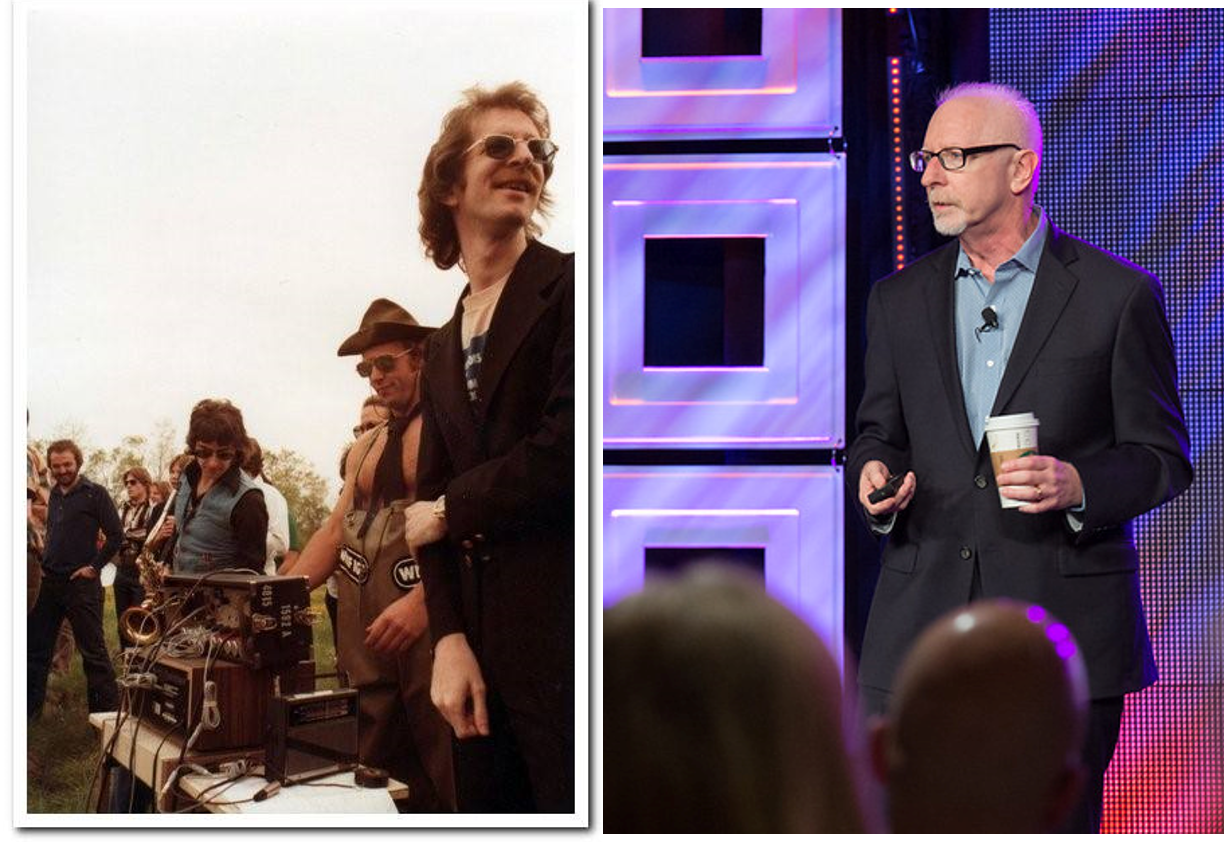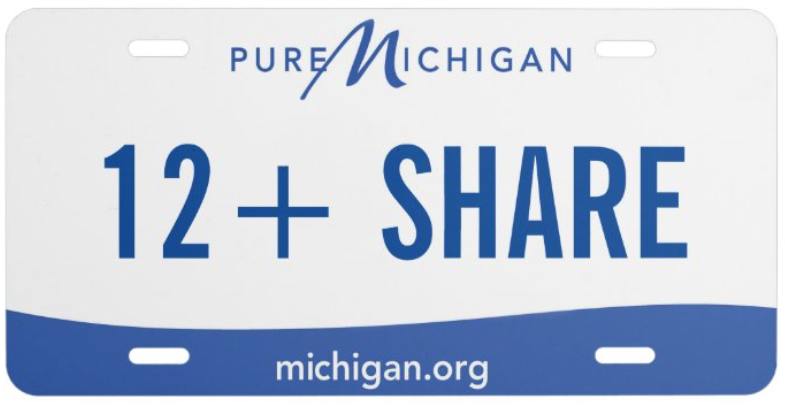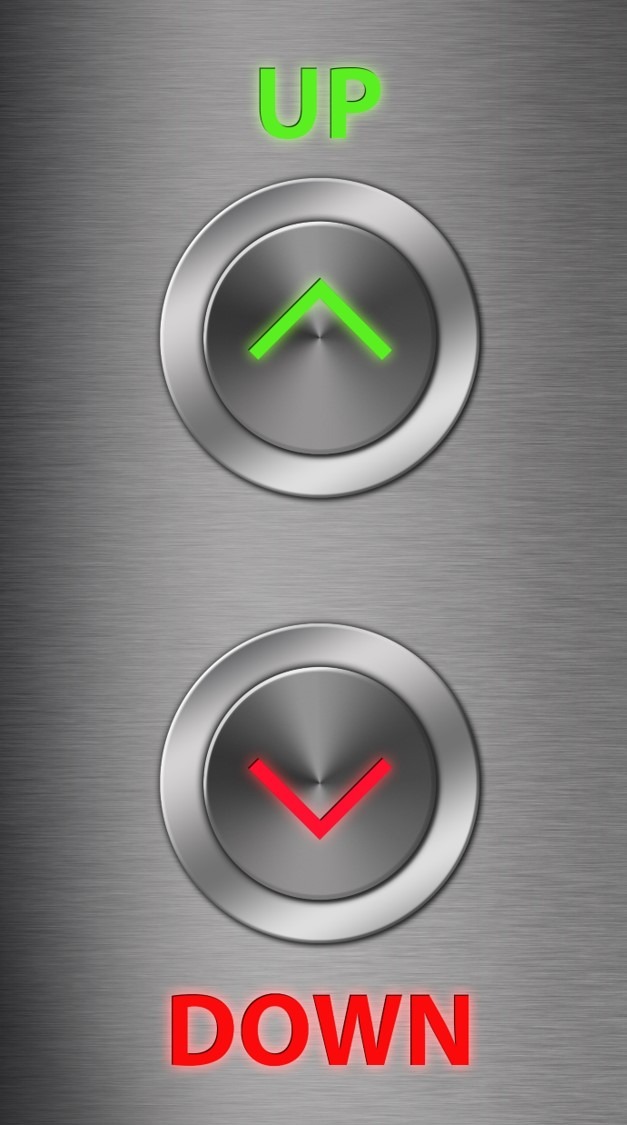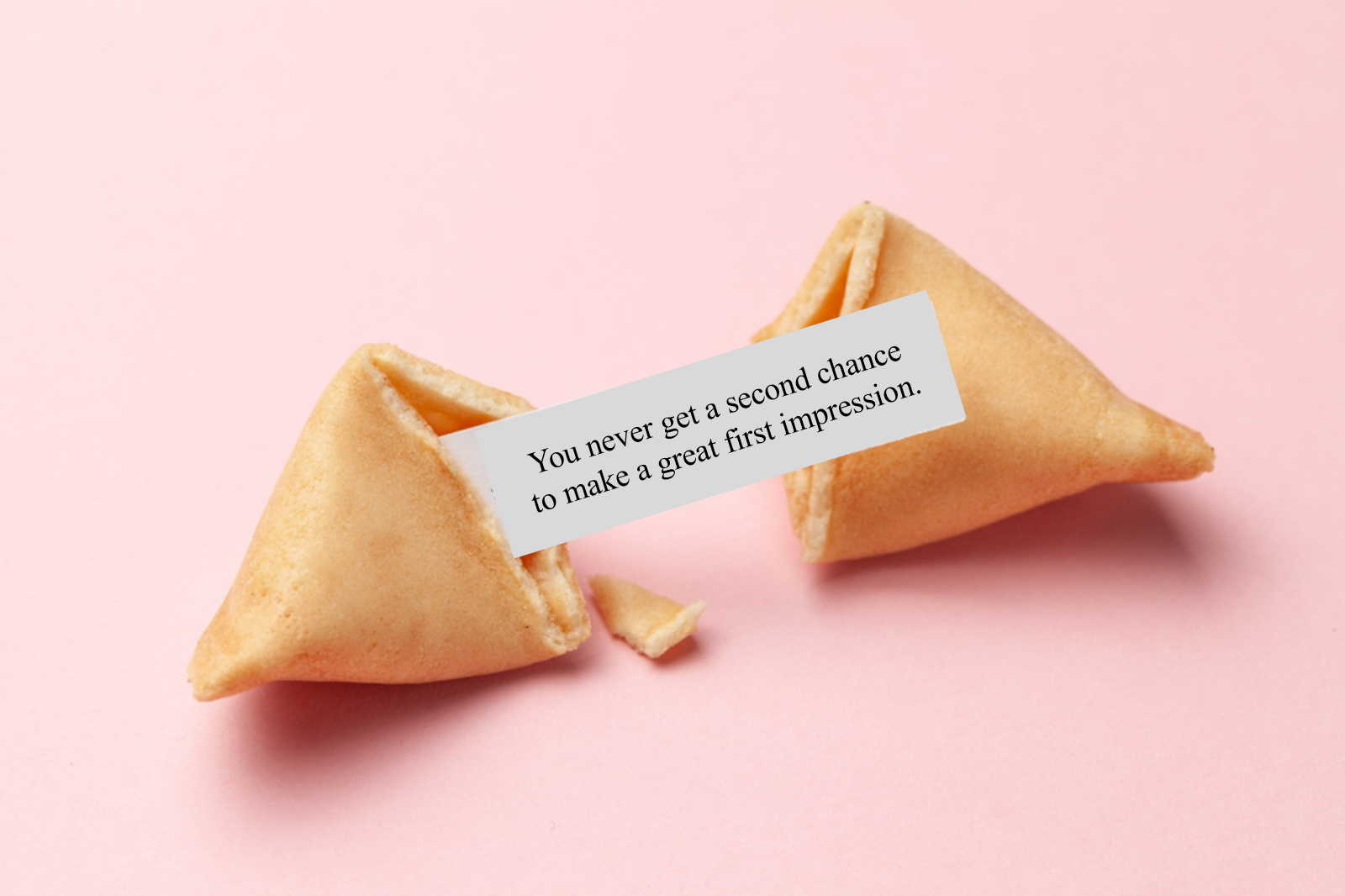
No matter how long you’ve worked in radio, and how old you are, I’ll bet you still have vivid memories of your early days in the business. You may struggle to recall what you ate for dinner last night or who you Zoomed with last Tuesday. But you most definitely recall the moment when you got that first job in radio, someone taught you the fundamentals of the craft, that time you were fired (OK, maybe there were more than one of these), your best rating book, and sadly, your worst one.
The thing you’ve hopefully gained along the way is perspective. You may not be any smarter or even more skilled – hopefully, you’re both – but are you dealing with it better now? Imagine how valuable it would have been if “future you” (the person you are today) could sit down and have a frank chat with “early radio you ” and provide advice. After all, nobody knows that green, inexperienced radio beginner better than the more mature, modern-day version of the person you’ve become.
Last week I was reading a tweet from Vala Afshar, Chief Digital Evangelist for Salesforce (and a great follow on Twitter). Vala listed out the bullet point advice he would have loved to have dispensed to his younger self. And I started to wonder what that would look like if it were focused on radio.
would have loved to have dispensed to his younger self. And I started to wonder what that would look like if it were focused on radio.
So, I made a list – for me, not necessarily for you. But if there are nuggets of wisdom, or more likely, common sense in my efforts, all the better. It turned out there are SO many things the sophisticated, experienced, time-tested Fred Jacobs 0f 2021 would like to tell that neophyte, well-meaning but naïve Fred Jacobs at Michigan State in 1973, it took me just a few minutes to create my list. I have a feeling yours would come quickly, too.
The thing is, that old version of you probably isn’t a whole lot different from the latest model. There are likely some physical differences (note the photo above), but the core of who you are doesn’t change all that much. The decades shape you, perhaps sanding down some of your rougher edges. You wise up, not as easily fooled by the promises or the fantasies.
You are who you are. But perhaps you might have avoided a sand trap or two with better counsel – from the latter-day you.
But this blog post goes nowhere if it’s just “today Fred” talking to “MSU Fred.” Use the “comments” section below to add a piece of advice (or two) you could now impart to the you of radio past. Or join me on Facebook or Twitter where I’ll pose the same questions.
Below is my list – in no particular order:
1. You are not your 12+ share – I cribbed this from Vala’s list (“You are not your job”). For many of us in radio, there’s that tendency to wear our numbers creating, depression, or frustration depending on how the ratings gods treat you in any given week, month, or quarter.
depression, or frustration depending on how the ratings gods treat you in any given week, month, or quarter.
This is a bad habit to get into, and an even harder one to break. But if you’re going to have a nice, long run in radio, this is advice worth heeding.
2. You didn’t get stupid overnight – This one’s a corollary to #1. You don’t get brilliant with a great rating book. Nor do you lose your instincts, your smarts, and your intelligence with a down book (or three).
your instincts, your smarts, and your intelligence with a down book (or three).
But the industry can be reactive – quick to reward great performances, but also quick on the trigger when things go a bit south. The phrase, “You’re only as good as your last book” has been around longer than me.
We all know people whose luck – both good and bad – overshadow their skill sets. “Them’s the breaks,” as they say. The ratings don’t necessarily reflect the IQ of the PD. The most successful programmers will admit the role luck has played in their journey to the winner’s circle.
Keeping a balance – not overreacting to the successes or to the setbacks is the best way to keep yourself in check. And to also help you manage up and down – those who you report to and those who report to you.
3. Lose those grudges – It is very easy to have a long memory for whoever screwed you along the way. There may even be reasons you’ll never know. Or maybe not. But how long do you want to carry the baggage of being pissed off about someone who wronged you a decade or more ago?
not. But how long do you want to carry the baggage of being pissed off about someone who wronged you a decade or more ago?
Remaining resentful and even angry is a weight that only you bear, the residuals of a relationship you can’t get over.
I’ve learned the other player (the “grudgee”) in your drama may not even realize you’re still steamed, still telling the story to anyone who will listen, and still letting it mess you up in your current and future transactions. Let it go.
4. Everyone counts – It is so easy to breeze past people along your fast track to success – the intern who idolizes you, the listener who just wants to introduce herself, the night janitor, the new guy on the sales team. The longer you do this, the more you end up working for some of these people. How you treated them in the past is not forgotten.
to introduce herself, the night janitor, the new guy on the sales team. The longer you do this, the more you end up working for some of these people. How you treated them in the past is not forgotten.
But beyond the practical reasons to be nice to everyone – no matter where they are on the flow chart of life – is the satisfaction you get from making others smile, thanking them for what they do, and appreciating them.
 5. Learn from everyone – On a somewhat related note, there are insights, lessons, and skills to be had from anyone you encounter – if you’re open to receiving it.
5. Learn from everyone – On a somewhat related note, there are insights, lessons, and skills to be had from anyone you encounter – if you’re open to receiving it.
Everyone has a story. And in fact an icebreaker question I often ask when meeting anyone is this: “So, how did you end up in radio?”
And the answer is always different, often fascinating, and occasionally insightful. Plus, people love to talk about themselves, so it’s the perfect question to start a relationship with.
Since I’ve started writing this blog back in 2005 and in need of a lot of material, I have become a better listener and interviewer. I ask better questions, and I have a keener understanding that I don’t know it all, and in fact, have a lot to learn.
Sure, it’s a bit humbling, but it’s also joyful to pick up a gem or two from someone you least expect to learn something from. Whether they drive an Uber, make your latté, schedule your music, or sign your paycheck, there are things they know you don’t know.
6. Work for good people – This is sadly not as easy or as obvious as it sounds. But chances are your career arc has been greatly influenced by your employer(s).  Not all great companies are owned by good people. If you can manage to earn your living working for people who take an interest in you, educate and nurture you, and want you to succeed, do it. It’s often not that hard to prioritize this when you’re job hunting. Believe me when I tell you that far more important that market size or the weather is who you work for.
Not all great companies are owned by good people. If you can manage to earn your living working for people who take an interest in you, educate and nurture you, and want you to succeed, do it. It’s often not that hard to prioritize this when you’re job hunting. Believe me when I tell you that far more important that market size or the weather is who you work for.
Before I started Jacobs Media, I was blessed to work for two of the best companies in their respective fields – Frank N. Magid & Associates (a research company in Marion, Iowa) and ABC Radio. I learned valuable lessons from brilliant people at each stop that enabled my entrepreneurial successes.
7. Get that degree – Too many in radio believed back in their youth that great skills would paper over their other shortcomings – like their higher education. But the books you don’t read, the essays you never wrote, and the social experiences you never had can eventually take their toll on your experience and capabilities.
the books you don’t read, the essays you never wrote, and the social experiences you never had can eventually take their toll on your experience and capabilities.
I realize – especially these days – that a college degree is not for everyone. But so many of the skills you need if management, ownership, and other lofty goals are on your “wish list,” often bloom from the lessons that come from a great education.
Your degree isn’t just about what you majored in. It’s proof positive you have the self-discipline to complete the program, and that you’ve learned how to learn.
I am always amazed by some of the little things from my college days that echo loudly years and even decades later.
8. First impressions matter – Especially in a new job, the tone you set in your first 90 days is the one that will follow you through your time on that job.
a new job, the tone you set in your first 90 days is the one that will follow you through your time on that job.
In the early days, listen intently, don’t rush to conclusions, don’t fall into bad relationships, and work your ass off. It is very hard to turn around the attitudes of those who report to you and those you report to when you get off on a bad start.
And whatever you do, don’t talk about what you did in your last job – whether it was in Philly or Pensacola. No one cares, and your new colleagues will conclude your head is still stuck in your last market.
9. If you’re the smartest person in the room, find a smarter room (or smarter people) – While you can and should learn from everyone (#5), surrounding yourself with truly great people – especially those who know about things you don’t know – can make you more learned and more successful.
surrounding yourself with truly great people – especially those who know about things you don’t know – can make you more learned and more successful.
But when your team is comprised of those who aren’t as talented or wise as you, there’s not a lot of room for you to grow.
Some enjoy bossing others around, but the truly skilled defer to the experts, the pros, and others with insights they lack.
Much of my career success has come down to hiring to my weaknesses – bringing in people smarter than me in areas where I have few skills or little interest. And then letting them do what they do.
10. It’s better to fade away than burn out – With apologies to Neil Young, we’re seeing a lot of this now – many people voluntarily packing a box or two, and calling it quits. The 24/7/365 nature of the business can exact a toll on people.
calling it quits. The 24/7/365 nature of the business can exact a toll on people.
For many, what began as hard work turns out to be workaholicism. I’ve been there and done that – more than once. And it’s a tough road. My advice to young radio Fred? Pace yourself.
Everyone’s exit strategy is going to be different, sometimes dependent on who makes the call. But making sure your relationships, your life, and your finances are intact – or better yet, good – is something most of us can control.
11. Pay it forward – Or give back. Whether it’s volunteering at your local food bank, speaking to high schools, or giving your time, experience, or celebrity to groups that need it, this is part of the circle of career life.
groups that need it, this is part of the circle of career life.
And when you’re doing good, good things often happen. As a PD, I loved staging fundraisers where we could combine entertainment for the audience with funds for deserving organizations.
At ABC in those days, we weren’t allowed to profit from station events, like concerts or festivals.
Some of my proudest moments were writing that big check to the Detroit Zoo or public radio station WDET-FM which was on the financial ropes at the time. It was rewarding.
Any time your powerful local brand or your position allows you to help others in need – especially in your community, it’s a rush. It’s a feel-good moment for the staff (and you), and it leaves you with a good feeling about why you do what you do.
Make your own list. And then look at it and realize how much wisdom you’ve accumulated over the years. In some ways, it may be a little late for the “today you” to benefit from the lessons learned by “early radio you.” But even if that’s the case, there are many twentysomethings in radio who just might read this post, and pick up a few pointers from your old self.
Use the “comments” section below to give me a piece of advice or two that would have helped that younger version of you.
Or go to my Facebook page.
Or my Twitter page.
- Media And Technology In 2025: Believe It Or Not! - April 18, 2025
- In Radio, You Just Never Know - April 17, 2025
- The Secret To Making A Great Podcast (And Great Radio) - April 16, 2025




The advice I’d give my younger version of radio me is to spend more time learning from the engineers who tried to teach you when you were a snotty-nosed college kid who was more concerned about sounding cool than actually understanding what “all the blinky lights” meant. And, take every computer class you can. To this day, the engineers around me can sense, “I can probably tell this guy anything because he has no real clue how any of this equipment works.” Not fun.
Good one, Matt. I was lucky – I roomed with an engineer – one of the best there ever was, Larry Estlack. Early on, he imbued me with respect for engineers – who they are, what drives them, and what they do. To this day, my engineering skills are very modest, but I enjoy chatting with the folks who figure out a way to make it all work.
Great post this morning, and we all have reflections on what we did right, what we did wrong, and we learned throughout my career. Back in 2019 I was honored to receive the Rockwell Award from the Conclave. We wrote a blog post about my speech, which included a list of what I learned.
You can access it here: https://jacobsmedia.com/what-does-it-take-to-win-a-rockwell-award/
I figured today’s post would resonate with you. Like so many others who have been in the business for several decades, you look back at the years with a combination of satisfaction, success, but those occasional moments of regret. I think it’s the latter that really shapes the person you end up becoming. I remember your post. It was a good one.
Man, such a stellar read. Really made me sit and think! Awesome.
I’ll add one Fred. To quote the legendary songsmiths, Henley and Frey…it truly is “The long run”. I wish in hindsight I took the advice I used to give to my teams, (It’s a marathon, not a sprint) and lived it more myself. Every issue and situation seemed like the only thing that mattered at the time…and there is just so much more to come!
Go Lions?!??:)
DP
I think that captures a big point, Dave. It is so easy to get caught up in the heat of the moment (Asia) – a missed quarter, a lousy monthly, an event that bombed – that you miss the greater purpose of the mission. And perhaps a corollary is that most people remember your successes, not your turds. Thanks for contributing to this.
What would old Tito say to young Tito from 45 years ago?
1. Don’t get into fights on the air. Passion leads us to make mistakes like looking for fights with our competitors. Listeners get upset, friendships get damaged and, worst of all, you never know if one day you will find that person working with you in the same company in the future. Oh, and gastritis will never go away from your life …
2. Don’t give up your career for the passion of radio. I started studying 3 different majors, including Business Administration, but I preferred to be on the air on a radio station, so I never finished any of them. Many years later I was appointed general manager of a cluster of stations. Those studies that I dropped out would have undoubtedly helped me to perform better.
3. Learn to sell. Don’t be left alone with the programming and production part. Many more job opportunities will open up for you and you will be able to reach higher in your career.
4. Let go of your shyness. Throughout my career I met many very important people in the radio industry, in the music industry, in advertising and in many other areas. However, my shyness, which I could never overcome, probably closed the doors to many other opportunities.
The above does not mean that I am not grateful for my achievements. Only it is likely that I could have reached higher in my career.
Exactly, Tito. How much better could we have been if we’d had these insights. But, of course, that’s the contradiction. As someone much smarter said, “Youth is wasted on the young.” And if it’s make you feel better, your younger self wouldn’t have listened to Today Tito anyway. Thanks for checking in.
To my younger self in 1st job
In Wapakoneta Ohio in 1983
would be … realize you don’t know everything and don’t worry your voice will change a few octaves soon. And most importantly. The band Kajagoogoo it’s just a fad they will go away just like your parachute pants.
I worked in Wapakoneta a few yeats earlier 🙂
True, all of that. Thanks, Scott.
parachute pants (giggles)
Great read this morning. I especially agree with “Learn from everyone”. I’d also add “learn everything you can”. The days of “four and out the door” are far gone. The most valuble dj in a cluster is the one who can program, do good production, some engineering, understands traffic, and can go on sales calls.
I’d also tell my younger self to have a good back up plan. Learn a trade or get a degree in something besides radio. Learn to weld, do hvac repair or some other trade. Get a degree in marketing or computer science. Entry level jobs in radio rarely provide for a good living and there aren’t as many of those jobs these days as there used to be. I’m in a 5 station cluster and there’s only 3 full time employees. If your passion for radio turns into a full time job you’ll never have to weld again if you don’t want to.
That “back-up plan” keeps coming up. Thanks for the reminder, Craig.
Top (Bottom?) 5 Things I’d Tell My Younger Radio Self:
Don’t talk so much.
Don’t make fun of the music.
Don’t make fun of the commercials.
Don’t take two quaaludes, drink a bunch of beer, and then try and do a show.
Don’t lie about having a valid FCC license. It’ll get you fired.
These all sound a little close to home. 🙂 Thanks for sharing them, Harvey. Somehow, you survived it all.
For metered markets…
Your #1 point should probably read:
“You are not your 6+ share”
You’re right. My reference point is pre-PPM. Or is it, “You can’t control panel placement.” Thanks, Marty.
Great points, Fred, from you and from all the earlier responders. I’ll just add one banal point from the world of public broadcasting: Never fail to take seriously the importance of that public file. Don’t blow it off. When FCC inquires and you don’t have the goods, the repercussions can be significant. Speaking as one who was subpoenaed to testify at the FCC a few years ago…
Banal? Maybe, but important. This has been an overlooked “to do” for many broadcasters who are simply unaware of its “weight.” Thanks for the reminder.
Great topic, Fred, and I’ve thought a lot about it, during those “regret” moments especially.
What I’d tell my younger self, in 1975.
1. I Second That Emotion about getting the college degree, rather than 4 months of broadcasting school. Though I made some fits and starts toward it, the best I got was the Associates. There were some good programs back then, like Ohio University (with a student station that even had professional jingles). This group even produced the somewhat legendary “There Buddy” fake jingle package. I missed the education, the lifelong network, and other skills that would have served me well. (Then work weekends at a local radio station).
2. Don’t be afraid to pick up the phone and network. Call the overnight jock on WLS. When I think of everyone in radio, or formerly in radio that I’m connected with now on social media, what if I had been connected with all of them then?
3. Make a back up plan. Get qualified in engineering, or do something like drive a truck between jobs (jocks did that back then).
4. Get the traveling out of my system. Work in some places other than home.
5. Position myself in a smaller market near a big market. There are little satellite markets around Indianapolis, and it seemed like everyone working full time in Kokomo worked weekends in Indy.
6. Realize that for all but stars, on-air work has a shelf life. Get prepared for sales, marketing and ownership. Get out there and meet clients.
7. Buy a tower or several. (Not kidding: and engineer friend of mine has one in his back yard. The rents he’s charging on the tower are better than he could make on any investment, and will carry him to retirement and beyond.
8. Learn everything you can from anyone you can.
9. Have more fun and less stress.
Brad, these are great. I especially like the “tower in your backyard” idea. Of course, I no longer have a backyard. There’s some great stuff here for young people in the business. Thanks.
Enjoy it while it’s still ‘fun.’
I’m not in radio and this doesn’t quite fit but it’s similar in a weird kind of way.
When you posted this blog on Twitter it made me think about Shawshank Redemption and the moment Morgan Freeman went in front of the parole board for the last time and was asked if he was rehabilitated. Part of his answer was “I look back on the way I was then: a young, stupid kid who committed that terrible crime. I want to talk to him. I want to try to talk some sense to him, tell him the way things are. But I can’t. That kid’s long gone, and this old man is all that’s left. I got to live with that.” One of my favorite parts in a favorite movie https://youtu.be/KtwXlIwozog
That thought kind of haunts me, it’s funny, a degree is a big one for me although I hold a marketing degree I wish I studied in other areas and ideas. But, we live in a world of knowledge and fields of opportunity and even then you could take a class, you could read it, study it and research it and I wish I had done more of all that but mostly writing, music and literature. I’m not so sure I would have listened to my older self. I don’t regret my life but I sure would change a lot, it’s such a great thought, like editing, life design. One that is so worth taking to younger people that are going in the same direction as we did. We can’t change the past, and, not all of us are prescient but we can be strategic and well informed.
From what I see in radio, you really do have your Obi Wan Kenobi’s, not just one but many. Many I think could go in any other industry to great affect and I believe they have.
In Radio’s re-invention, you absolutely should be sharing your experiences and knowledge with younger upstarts, but also, you should as an industry be heavily recruiting not just College level candidates and their programs but building a better platform for radio at the high school level building a system that nurtures radio broadcasting for it’s own sustainability. Radio deserves that. You’re good people, it’s an important media not just legacy but longevity.
For someone who is what I call “industry adjacent,” Billy, you’ve got radio figured out quite well. We do have lots of smart people in radio, but not smart enough to invest in emerging generations. I have a feeling that “1979 Fred” would tell the guy writing this comment to get off his butt and start figuring out how to address radio’s youth problem – before it’s too late. Billy, he wasn’t right about everything, but he sure had a nice head of hair.
You are so right on the mark with your comment on programmers admitting that luck plays a big part, and that resonated the most as I was reading this, Fred.
My first PD gig came after I had only five years in the business, when the husband-and-wife owners of an also-ran in my hometown market decided to invent a new format … Top-40 for Adults. (We know that format today as Adult Contemporary.) They wanted someone who was local *and* young at the helm, and I got the call.
The year was 1978, which was a perfect time in music history to create the format. With songs like “Baker Street” and “Time Passages” on the charts, I was able to use my instincts to program the music. That music, plus being in the middle of the FM dial (96.7) in a market where the locals were everywhere from 95.1 to 105.5, meant people using their analog tuning dials — remember those? — had to tune past us. And the music, plus a clutter-free presentation, got us to #5 in our first Arbitron book. Without outside promotion.
Rather than get egotistical, I had the sense to realize how lucky we were and I just kept doing what worked. We did well enough over a three-year period for the owners to sell for a handsome sum.
If I could go back and tell that younger me anything, I would have counseled not to leave when that sale consummated (I did so because the new people were hell-bent on destroying everything that had been responsible for the success). If I had been there a year later when they went bankrupt I would have been in a great position to “rescue” the station a second time.
Who knows, maybe they’d still be an AC today …
There’s always that coulda, shoulda, woulda, KM. I inexplicably sold my ABC stock when I left the company for reasons I still can’t comprehend today. And a consultant, there have been some ill-fated decisions where I wish I could have do-over. You can’t beat yourself up on those gut calls. You make ’em, you play them the best you can, and you live to fight another day.
Between the post and the comments, there’s so much to love here, Fred. I agree especially with the first comment from Matt S, about learning engineering. It was actually the engineering side that I was most fascinated by, being one of those geeky radio kid that had the homemade station. I just always loved the idea of this tall, beautiful tower (sorry NIMBY’s, but I think towers are BEAUTIFUL) with my favorite music and personalities and memories flowing out and covering my city–granting all of us shared experiences and so much joy. And I know so many retired–or near retiring–engineers who wonder who will take over. But the one comment I haven’t seen that I would have PLEADED with my younger self to do is: “TAKE MORE PICTURES–LOTS AND LOTS AND LOTS OF PICTURES! YOU WILL NOT BE SORRY” It all goes by fast and it rarely if ever crosses your mind in the moment to capture it all. But oh, how I would love to see again many of the wonderful places and events and people that were part of my wonderful life in radio. I’ll always cherish the memories–but I’d give anything to be able to actually see many of them again. Meanwhile, thanks for the memories this created for us all, Fred.
This is the way I hoped it would come together, Dave. We have great readers out there with a true sense of love for radio and empathy for others – like you. That picture you see of me at the top of the post is one of about a half dozen I have. The sad truth – I didn’t take enough photos and sure didn’t save the ones out there. And I regret that. Thanks for the reminder, and I wish I would have met you back in 1979.
1079?!? I’m not THAT old!! Ok, just picking on your typo, but seriously, I don’t have a SINGLE picture of some of my favorite stops. And the only reason I have pictures of my all-time favorite stop was because it was in a newspaper building and they came up to do a story on me one time. They used just one photo in the paper but took lots of them and gave them all to me afterwards. But wow, I’m thankful to have them. And what a gracious comment, Fred, I certainly wish I’d have known YOU back in 1979 myself! (PS, just for giggles on the typo, would you believe I bought a small station some years ago, and the dial position was…yep, 107.9!)
Ha ha! I just used Liquid Paper to fix it.
Good point on not letting the numbers define you. I told my staffs that ratings are like a baseball season. You can’t get too high over the wins or too low over the losses. The key is to maintain a good level over time.
Yup, Steve, it’s about balance. At least sports seasons mercifully end. The final standing come out, the trophies are passed out, the bonuses distributed, and everyone goes to the Bahamas. The radio season never ends. That’s one of the reasons why balance is so important.
The original blog post is superb, Fred. Your “then and now” (aka, “before and after”) pic represents a lifetime of learning, advising and earning a living in a business that is often challenging, alternately rewarding, and frequently (fitting the earlier reference to my favorite movie, Shawshank Redemption) “obtuse.”
The follow-up comments are particularly instructive and revealing, leading me to write, “what they ↑ all said.” And as usual, our Lonnng Before Facebook Friend and Ravens fan Harvey Kojan is humorous and poignant.
One of the tribal elders early in my career advised, “Pay the rent on time and save 20% of your paycheck when times are good because you’ll need it when times are bad.” There were far more good times than bad, but the advice was priceless.
And what would I tell a young Jim? “When offered a gig out-of-radio with great health benefits and a guaranteed pension, take the gig… thirty years goes by fast. The days are long, but the years are short.”
Jim, you always fascinate me with your “take,” and this was no exception. Thanks, as always, for illuminating my topic.
Great post this morning.
To my younger self:
Be honest with everyone including yourself.
If you don’t know something, seek out someone who does.
Don’t try and do it all yourself. Surround yourself with talented people and let them do their jobs.
Your job never defines you. YOU define you!
Good stuff, John. I expect that like me, this one came easy for you. Thanks for contributing.
What an awesome column Fred – you’ve been on a real roll lately.
Kinda personal and very different than the others, but WTF.
Advice for my young self in my first radio job:
1) STFU. You may have a few better ideas than some around you, but they’re wiser, more agile and street smart and you have only to lose in taking them on – instead, make yourself invaluable to them.
2) STFU. Your actions, accomplishments, friendships and alliances mean more than your opinions – and the former speak for themselves.
3) As soon as you realize that you’re working for an irredeemable assh*le, start looking for another job – but try not to let your disappointment show. If they’re completely surprised when you resign, you did it right. There are good schools for your kids all over the country – and on that note, don’t move anywhere for a job that it wouldn’t be OK for you if you spent the rest of your working life there.
4) If you’re a manager (in any field) with folks reporting to you and are asked to stay on through a sale that you won’t survive past closing, don’t do it, unless there is life changing money involved. A couple months of severance won’t change your life, but the experience will – and not in a good way. If I could trade a check for all the severance I got for those horrible times, I’d do it in a heartbeat.
5) Pick another career. Right about the time I couldn’t get a job I wanted in radio anymore, I started not wanting the jobs I couldn’t get. Radio, IMO, devolved into a worse and worse career (less security, less authority, much less creativity) – and I had a lot of working years left when I realized all of those things and had to find a way to do something else. Yes, the years in radio were fun, but in the long run it wasn’t worth it. For any 20-somethings reading this, whatever sector you’re considering, if your Dad says, “dunno, seems like a really peculiar field” – pay attention.
Bob, I was hoping to hear from you today. Thank you for the kind words about the post. And I truly appreciate reading your take on this topic. I love #3 and #4. If I ever memorialize this list (you know, that book I’ve yet to write), I’ll ask you permission to include both items. Thanks again for engaging.
Permission granted.
Great post Fred. The advice I’d give the younger me. When the old man wanted to teach me the car business and take over the dealership in a few years, I should have done it. I was 30 years old, successful in radio, and I thought he was nuts. Years later, I got to be friends with the guy who bought all of Penske’s car stores. Jerry told me I was the one who was nuts.
One piece of advice, my old man gave me, I tattooed on the inside of my eyelids, “Don’t treat the hired help like the hired help.”
Ultimately, you have to decide about whether it’s about the bucks – or not. As your story indicates, sometimes by the time you figure it out, it may be too late. When you’re young and the glamour of the business is all you see, it’s easy to opt for the fun aspects at the expense of the money. I think most people in the business old enough to know better, would still opt for radio, don’t you think? Thanks, Robert.
Thanks Fred. The one thing I continue to think about younger Mark is how impatient he was… how eager he was to try “the next big thing” and move on to the “next big gig”. If only I could explain to him how patience is not just a virtue, but a learned skill that could have benefitted younger him as much (and probably more) than it has older him.. aka me.
Patience, indeed. I’m hoping younger radio folks turn into some of these nuggets. Thanks for offering yours, Mark.
Unless your actual goal is to be one, never ever become a Program Director or a General Manager. Also, when you think you are doing enough show prep that usually means you are not doing nearly enough. Air time is precious. Don’t waste any of it.
Interesting “take,” Jay. Thanks for weighing in.